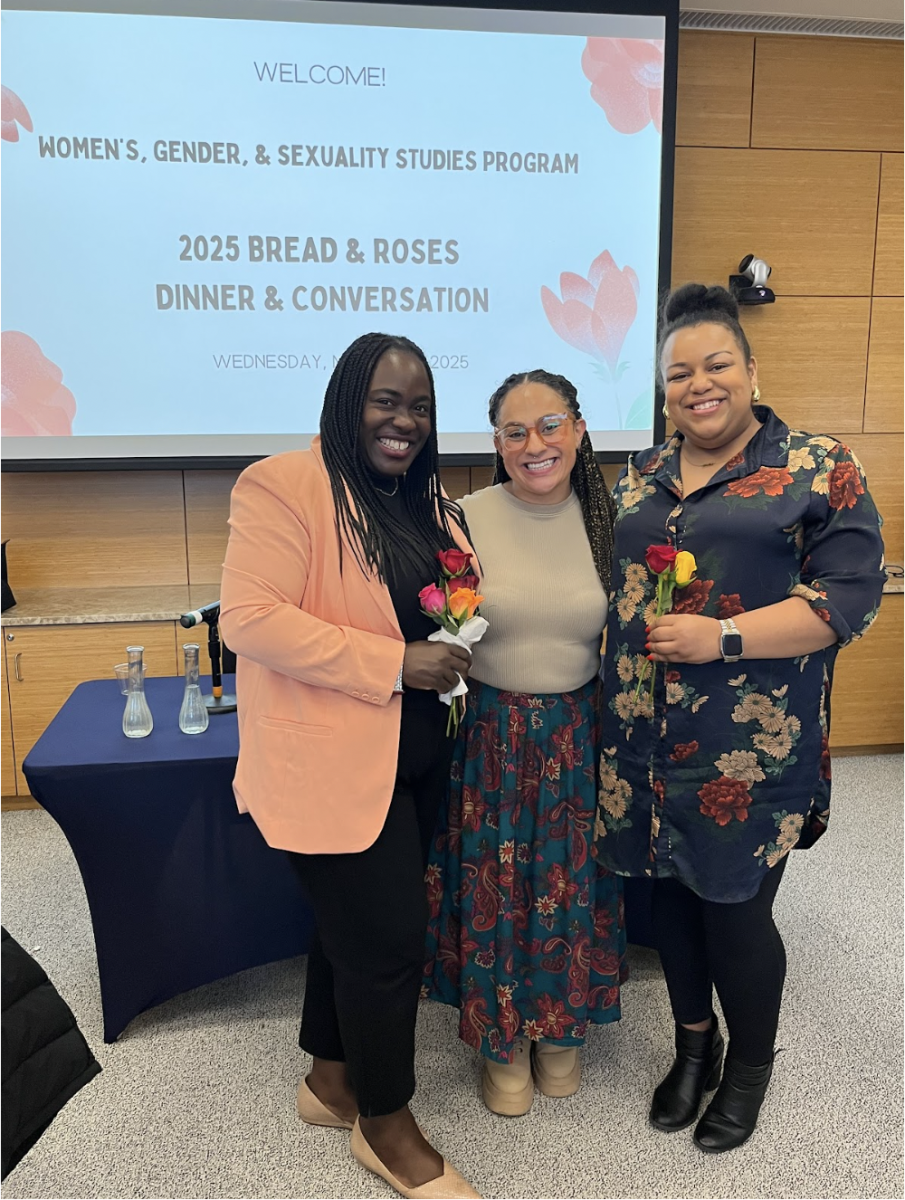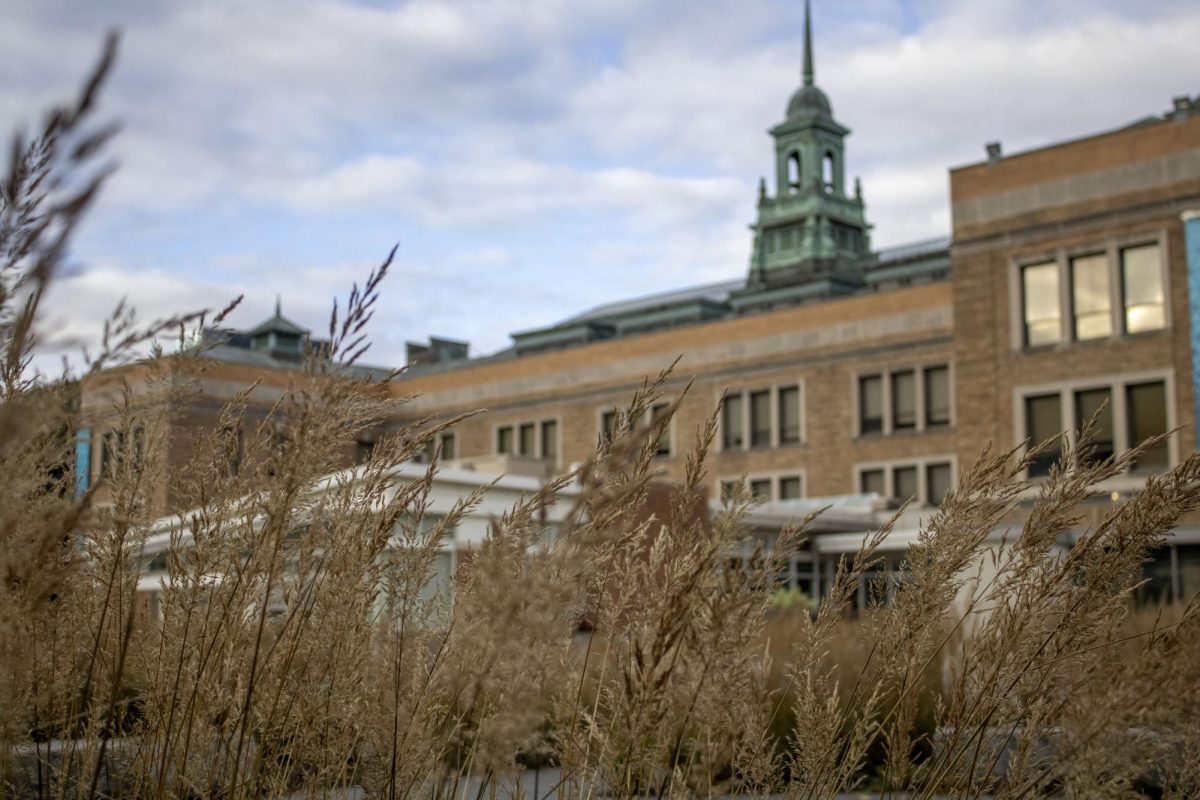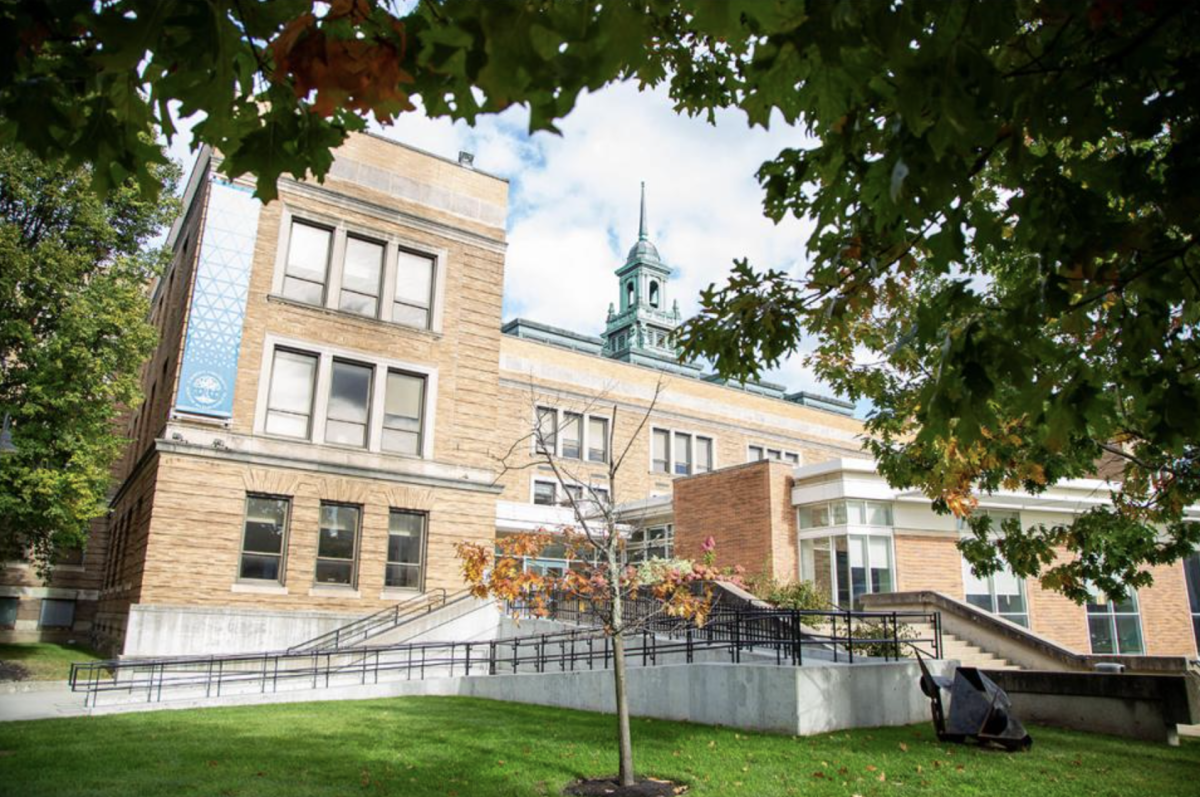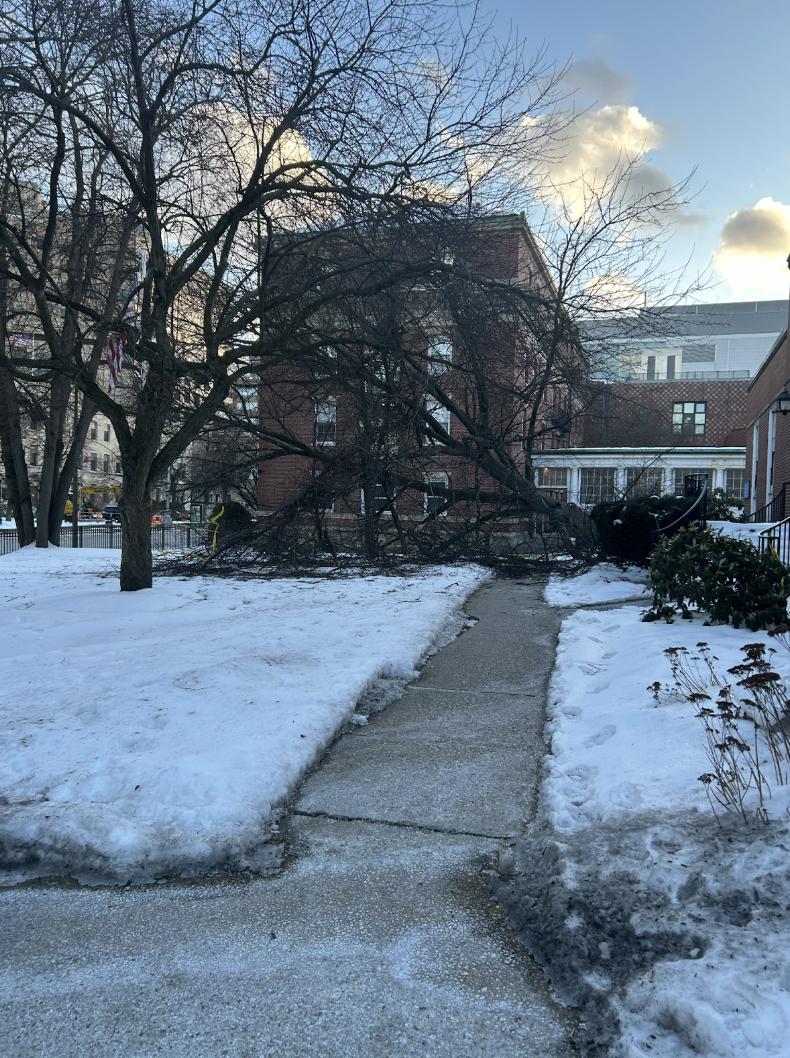The Simmons Women’s, Gender and Sexuality Studies Department hosted the annual Bread & Roses dinner on Wednesday, March 26, which centered around black maternal healthcare and reproductive justice. The discussion was led by Dr. Tatiana M.F. Cruz, professor and interdisciplinary Program Director of both Africana Studies and Women’s, Gender and Sexuality Studies.
As a longstanding tradition, the dinner commemorates the 1912 immigrant-led textile worker’s protest in Lawrence, Mass., also known as the Bread and Roses strike, to reform the unsafe labor conditions, extreme poverty and wage inequalities.
The expression came from the American labor organizer Rose Schneiderman’s iconic quote, “You have nothing that the humblest worker has not a right to have also. The worker must have bread, but she must have her roses too.”
To combine this powerful sentiment of activism, the department joined Dr. Ndidiamaka Amutah-Onukagha, director and founder of the Center for Black Maternal Health and Reproductive Justice at Tufts University School of Medicine, alongside her colleague Dr. Heather Olden in conversation tracing their experiences and educational backgrounds in public health. The center, founded in 2022, according to Dr. Amutah-Onukagha functions as “one of the first in the country to have a specific focus on black maternal health and reproductive justice.”
Dr. Amutah-Onukaghahas worked at Tufts since 2017 and spearheads the center alongside her leading role as director of the Maternal Outcomes of Translational Health Equity Research (MOTHER Lab) with research involving maternal health disparities, infant mortality, reproductive justice and social justice.
Similarly, Dr. Heather Olden who earned a Doctor of Public Health in May from the Harvard T.H. Chan School of Public Health, expressed her own lifelong inquisition about “why certain people lived one way and other lived another,” writing her dissertation on how to mitigate tensions in clinical spaces. Her speech focused on including ones prevalent in black maternal care, especially birthing service programs of maternal doulas, providers and patient advocacy.
Prior to her work in Boston, Dr. Olden worked for seven years as an epidemiologist at the Henry Ford health system in Detroit engaging with patients and community outcomes. After shifting gears away from a medical career, Dr. Olden developed her passion for public health with research advancing hospital readiness and maternal doula service program expansion.
Dr. Amutah-Onukagha lost a friend as a teenager due to pregnancy complications. The friend suffered from an underlying autoimmune disease, but the underserved hospital was not fully equipped to support her pregnancy unlike high-level trauma centers. According to the center’s research, “84% of deaths from maternal mortality are actually preventable,” where “…black women are dying at thirty-four times the rate of their white counterparts,” Dr. Amutah-Onukagha states.
Dr. Amutah-Onukagha also emphasizes the racism within the healthcare system, identifying the differential treatment given to black birthing people, such as providers “dissuading black and brown women from having vaginal deliveries after having prior C-sections,” not based on their ability to labor.
“When you see something, say something…If you realize people are not getting treated well or not getting equal treatment, you call out the system,” said Dr. Amutah-Onukagha in an interview with the Voice. “Find your way to get your message out, post the content. Someone’s watching it and it’s impacting someone,” adds Dr. Olden.









